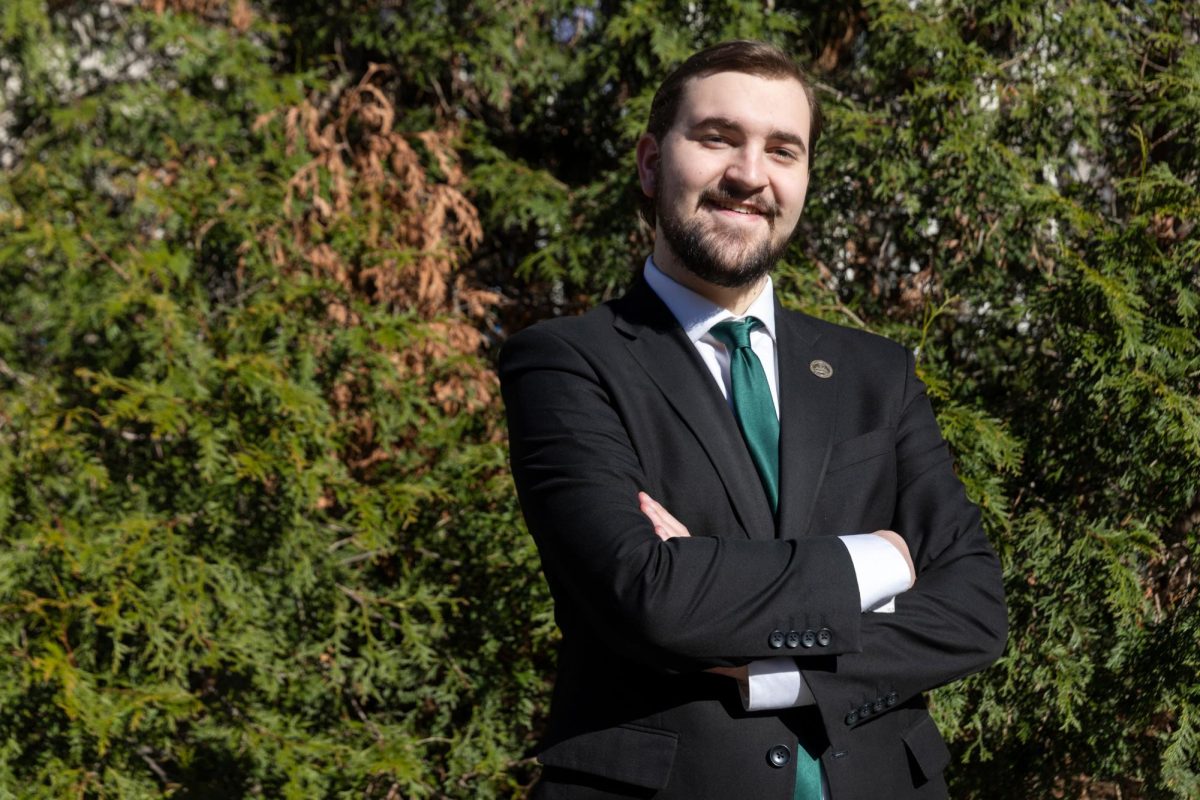The Student Association’s Graduate Senators Caucus hosted a town hall Thursday to discuss graduate students’ sentiments regarding officials’ refusal to grant them a tuition reduction for the academic year.
SA Sen. Sebastian Weinmann, Law-G and the chair of the caucus, presented the findings of a survey administered earlier this month to graduate students concerning officials’ decision to provide a 10 percent tuition discount to undergraduates but not graduate students. Weinmann said the members of the caucus will submit to officials a report – based on the findings from the survey and testimonials from the town hall – demonstrating why the graduate student body should receive the same reduction allocated to the undergraduate body.
Weinmann said the graduate student tuition survey received 721 responses from all 10 of the University’s schools, making up roughly five percent of the graduate student body.
More than 28 percent of respondents said they were struggling to pay tuition amid the pandemic, and more than 96 percent of the respondents said they were “dissatisfied” or “very dissatisfied” about not receiving a tuition reduction, the results state. More than 46 percent of survey participants said they are considering deferring or postponing their enrollment at GW, and more than 29 percent said they are considering transferring from GW to another university.
The survey also revealed that less than one-third of graduate student respondents were “satisfied” or “very satisfied” with the University’s response to COVID-19.
Weinmann said many respondents noted that since the pandemic began, they have lost access to several on-campus resources, including graduate schools’ buildings and libraries and the Lerner Health and Wellness Center. Prior to the start of the semester, officials restricted access to buildings on all three of GW’s campuses only to community members approved to be on campus.
“It’s really clear from these numbers that grad students do usually utilize a lot of the resources and services that the University offers on campus,” Weinmann said. “It’s not just undergrads using these spaces, and we are missing out because we are in a virtual semester.”
Weinmann said one of the sentiments most often brought up in the survey was that graduate students felt “undervalued” compared to undergraduates after not receiving a tuition reduction, and “many” said they felt the University was using them as a “cash cow.”
“The takeaway is that there really is a tremendous amount of hurt among students across all of GW’s graduate schools because of the University’s decisions regarding graduate tuition,” Weinmann said.
SA Sen. Thomas Falcigno, CPS-G and a member of the caucus, said survey respondents wrote they would use the money saved from the tuition reduction to pay for basic living expenses, like rent, groceries, paying off debt and saving for the future amid the current economic climate.
“It was just sad and very telling how easy it was to find these difficult experiences for students and really shows how this would be beneficial for students as well,” he said
Falcigno said caucus members intend to meet with officials and ask that administrators treat the undergraduate and graduate student bodies “equally” and recognize that graduate students are facing “significant” financial hardships. He said the lack of recognition administrators have given graduate students is “astounding.”
“There’s just such a lack of empathy from GW administrators toward graduate students that is frankly incredibly upsetting,” he said.








